
Cassie Martin
Managing Editor
Cassie Martin is the managing editor at Science News. She has a bachelor's degree in molecular genetics from Michigan State University and a master's degree in science journalism from Boston University.

Trustworthy journalism comes at a price.
Scientists and journalists share a core belief in questioning, observing and verifying to reach the truth. Science News reports on crucial research and discovery across science disciplines. We need your financial support to make it happen – every contribution makes a difference.
All Stories by Cassie Martin
-
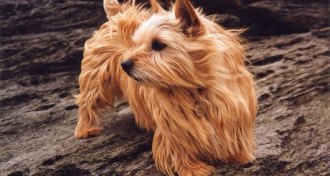 Animals
AnimalsSome dog breeds may have trouble breathing because of a mutated gene
Norwich terriers don’t have flat snouts, but can suffer the same wheezing as bulldogs. It turns out that a gene mutation tied to swelling could be to blame.
-
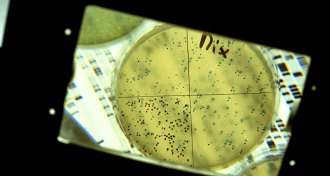 Life
Life50 years ago, scientists were unlocking the secrets of bacteria-infecting viruses
In 1969, a bacteria-infecting virus held promise for unlocking the secrets of viral replication. Fifty years later, the virus is a versatile tool for scientists.
-
 Science & Society
Science & SocietyNSF science research funds are flowing again after the shutdown
Assessing the scope of the shutdown’s impact on NSF-funded science will be a long process.
-
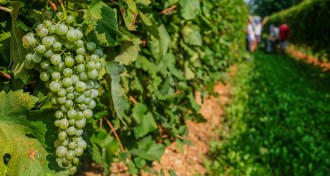 Agriculture
AgricultureProsecco production takes a toll on northeast Italy’s environment
The soil in Northern Italy’s prosecco vineyards is washing away.
-
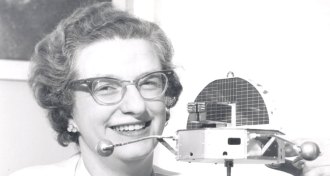 Astronomy
AstronomyKnown as the ‘mother of Hubble,’ astronomer Nancy Roman dies at 93
Astronomer Nancy Roman, the “mother of Hubble,” has died.
-
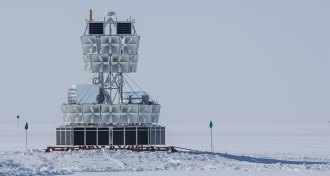 Astronomy
AstronomyThese 2018 findings could be big news — if they turn out to be true
Discoveries about fossils, the Big Bang and more could shake up the scientific world – if they turn out to be true.
-
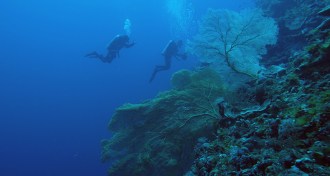 Animals
AnimalsNearly 200 Great Barrier Reef coral species also live in the deep sea
There are more coral species lurking in the deep ocean that previously thought. That could be good news for their shallow water counterparts.
-
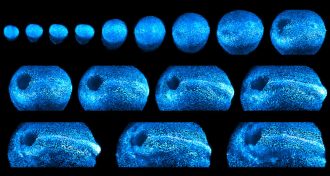 Life
LifeSee these dazzling images of a growing mouse embryo
A new microscope creates intimate home movies of mice embryos taking shape, and could shed light on the mysterious process of mammalian development.
-
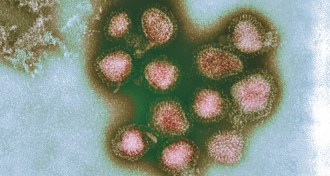 Health & Medicine
Health & Medicine50 years ago, a flu pandemic spurred vaccine research
A half-century after the Hong Kong flu pandemic, scientists are getting closer to a universal vaccine.
-
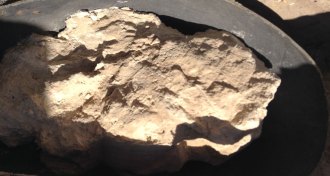 Science & Society
Science & SocietyCheese found in an Egyptian tomb is at least 3,200 years old
Solid cheese preserved in an ancient Egyptian tomb may be the world’s oldest.
-
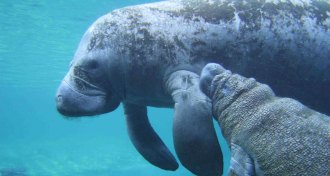 Animals
AnimalsA ghost gene leaves ocean mammals vulnerable to some pesticides
Manatees, dolphins and other warm-blooded marine animals can't break down organophosphates due to genetic mutations that occurred long ago.
-
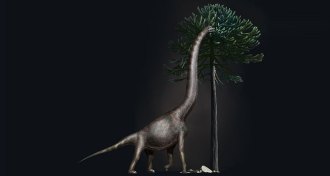 Paleontology
PaleontologyPaleontologists have ID’d the world’s biggest known dinosaur foot
Bigfoot has been found in Wyoming. It’s not a hairy, apelike creature; it’s a dinosaur.